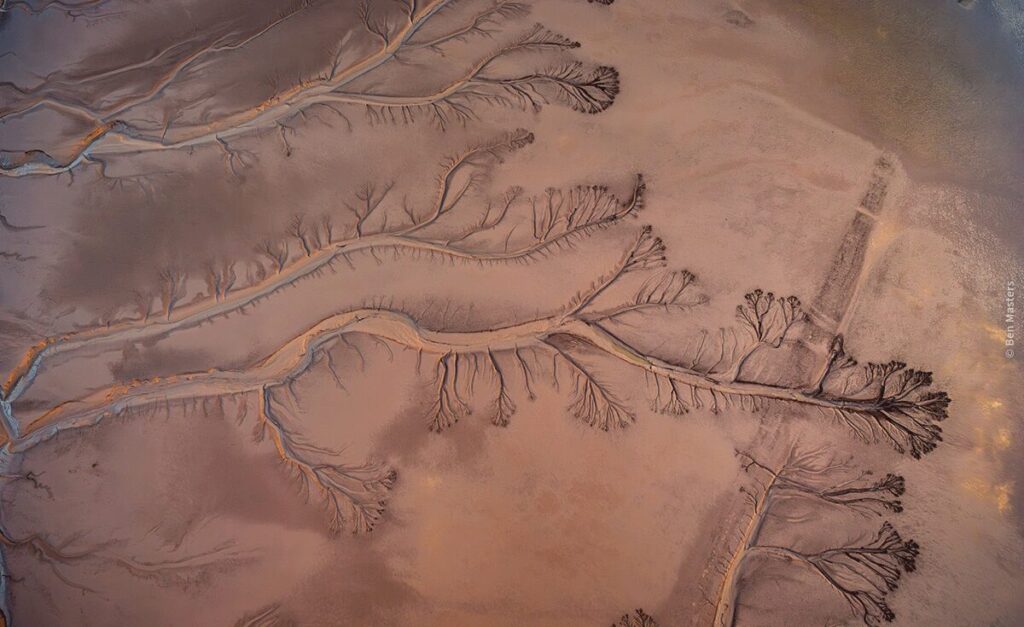The northwestern Mexico confronts water challenges unprecedented due to the climate crisis and the growing demand for water. The year 2024 was the warmest year on record, with global temperatures 1.5°C above pre-industrial levels.
Sonora y Sinaloa have experienced significant increases in their average temperature. An analysis based on data from the National Water Commission (Conagua) shows that, between May 2021 and May 2024, the temperature in Sinaloa rose by 2%, while Sonora recorded temperatures above 35°C.
At present, 102 municipalities in the northwest have some degree of droughtof which 14 are in the most extreme category. The lack of rainfall and increased evaporation have worsened the situation, with dams registering alarmingly low levels:
- Baja California: 57% of storage in its four main dams.
- Sonora: Only 14.3% of its capacity in nine reservoirs.
- Sinaloa: Only 11.3% of the water its 11 dams can store.
Impact on livestock and agriculture
The lack of water has wreaked havoc in the agri-food sector. At Baja California SurIn Sonora, the crisis has caused the death of up to 30,000 cattle, while in Sonora the shortage of feed has affected the weight of cattle destined for export.
In the agricultural sectorIn Sinaloa, highly water-demanding crops, such as wheat in Sonora and corn in Sinaloa, face reductions in planted hectares. In Sinaloa, the 2024-2025 agricultural cycle began with restrictions that could affect the production of white corn, a crop that requires between 6,000 and 9,000 m³ of water per hectare per year.
Actions to mitigate the water crisis
Through innovative initiatives and efforts to restorationorganizations such as Pronatura Noroeste are making a difference in the conservation of the most vital resource for life.
This organization has promoted projects of conservation and restoration of ecosystems which play a key role in aquifer recharge and biodiversity protection. Notable actions include:
Tijuana Rio Conecta
It is an inter-institutional initiative dedicated to the conservation of a vital ecosystem within the urban area of Tijuanaborder city with California.
As an active member of the collective that drives this project, Pronatura Noroeste works together with the government, the business sector and the community to clean and restore the river. Among its main actions are the removal of solid waste and debris, as well as reforestation with native vegetation.
In addition to ecosystem recovery, the project integrates an educational component, aimed at high school and professional level students, with the objective of raising awareness of the importance of preserving natural spaces within the city.
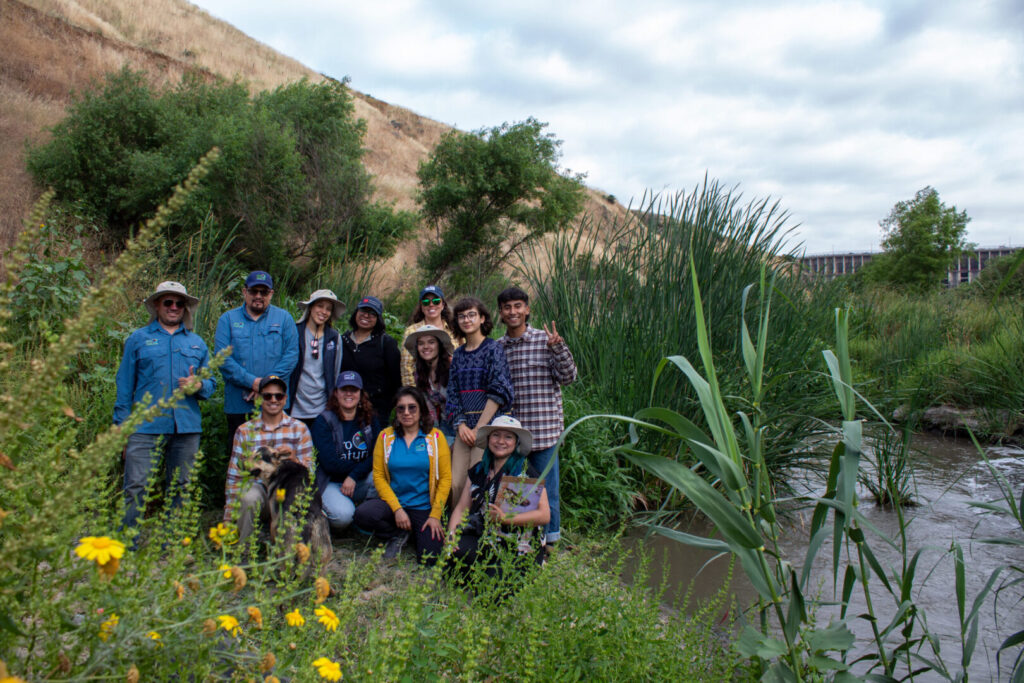
Restoration of the Colorado River Delta
The Colorado Riveronce the livelihood of communities and ecosystems in its Mexican section, today faces a severe crisis due to drought and the diversion of its waters into agricultural canals. Cities such as San Luis Río Colorado have seen the riverbed that gave them their name disappear, while the ethnic group Cucapaknown as "the people of the river", has lost a fundamental pillar of its cultural identity.
To counteract these impacts, the Revive the Colorado River Allianceof which it forms part Pronatura Noroeste, has promoted binational agreements that have allowed the allocation of more than 400 million cubic meters of water for the restoration of the river. Thanks to these efforts, more than 500 hectares of riparian forests have been regenerated, bringing back to life a key ecosystem for the region's biodiversity.
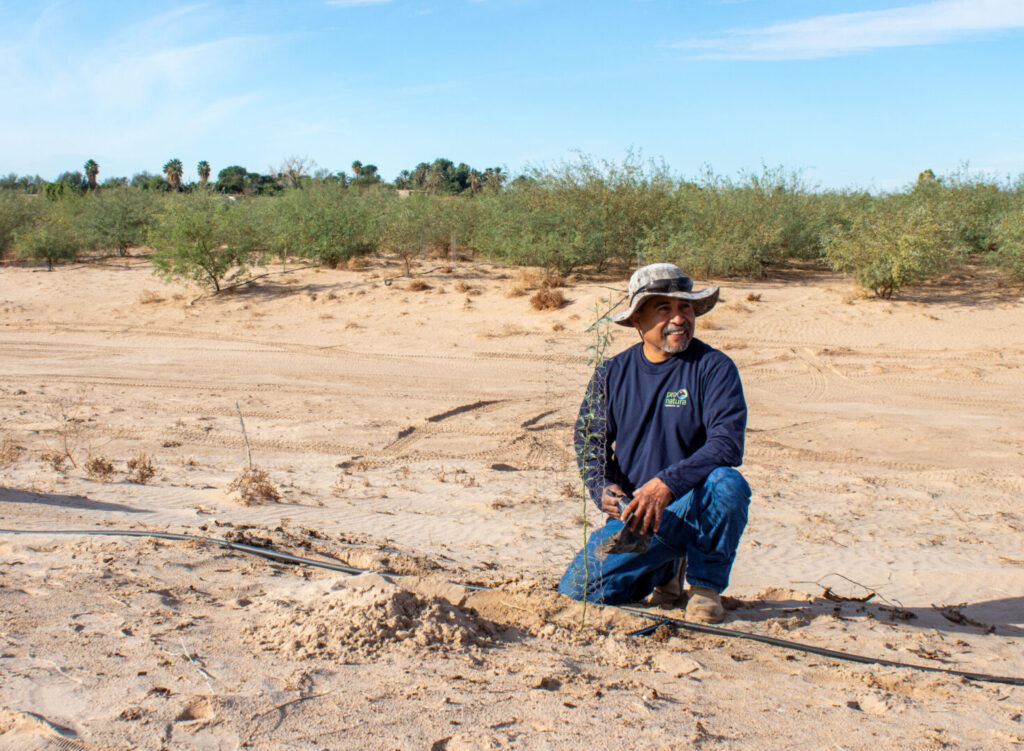
Conservation of the Miguel Alemán site
One of the most outstanding achievements within the Colorado River delta is the recovery of the site Miguel Alemanwhere Pronatura Noroeste has restored more than 170 hectares with guaranteed environmental water supply.
This space, once an arid plain, is now home to more than 122 species of birds thanks to an ambitious reforestation program with native species such as sweet mesquite, palo verde and strawberry bushes, whose fruit is a source of food for the local fauna.
This effort has been made possible thanks to the support of donors, the governments of Mexico y United Statesand collaboration with the Revive the Colorado River Alliance.
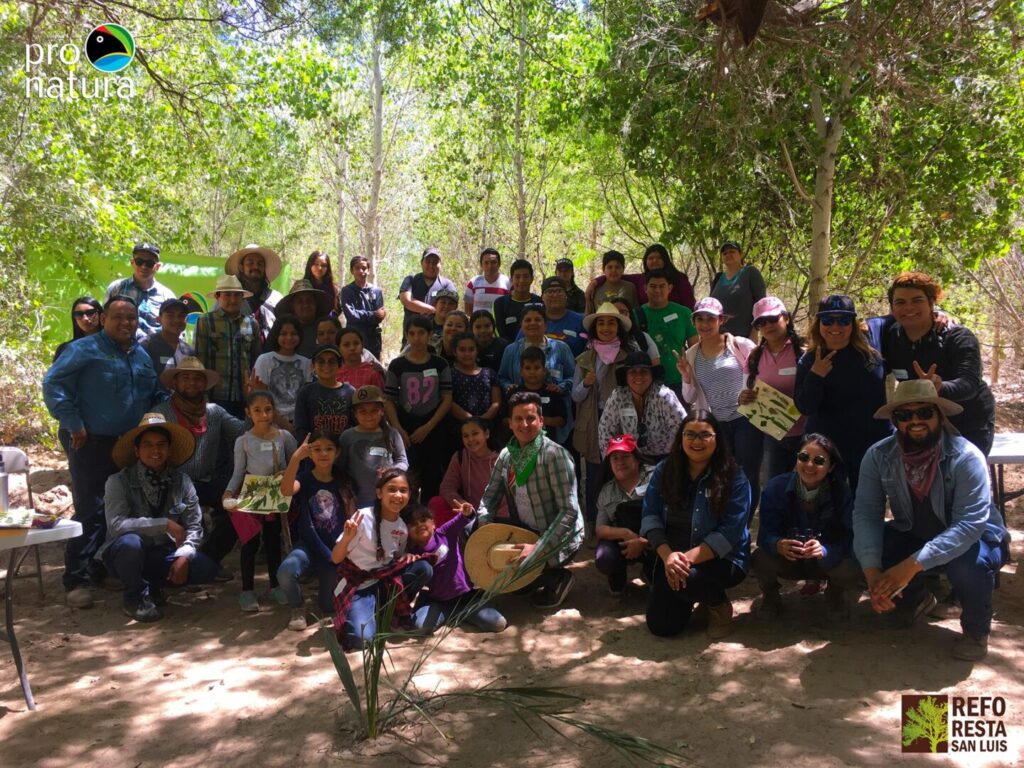
Restoration of San Miguel Creek
Located in Baja Californiathe San Miguel Creek is a key ecosystem covering 67 hectares of coastal landscape and a 242.5 km² watershed. Declared Natural Protected Area In 2021, this area is home to 112 species of plants, 47 species of mammals and 107 species of birds.
Its restoration is essential for water conservation in the region, especially for the wine industry, whose production has been affected by water scarcity and rising temperatures. Pronatura Noroeste actively participates in this project through:
- Habitat cleaning and restoration.
- Reforestation with native species.
- Creation of an interpretive trail for environmental education.
- Volunteer and awareness programs.
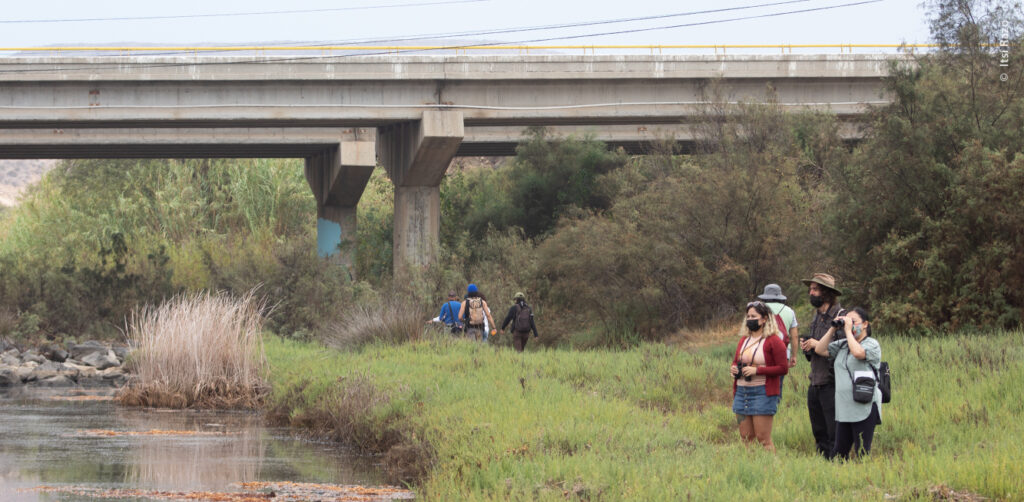
Eco Youth Park
In the municipality of La Paz, Baja California Sura set of oxidation ponds that had ceased to function has been transformed into a refuge for biodiversity thanks to the Eco Youth Park.
This 25-hectare site is home to 223 bird species, the second most diverse site in the state, only after San Jose del Cabo. In addition, 16 of these species are protected by the Government of Mexico.
The project, led by the La Paz City Hallhas the collaboration of Pronatura Noroeste and various local organizations. Its recovery has allowed the reintegration of the ecosystem into the urban environment and the creation of a space for recreation and environmental education for the community.
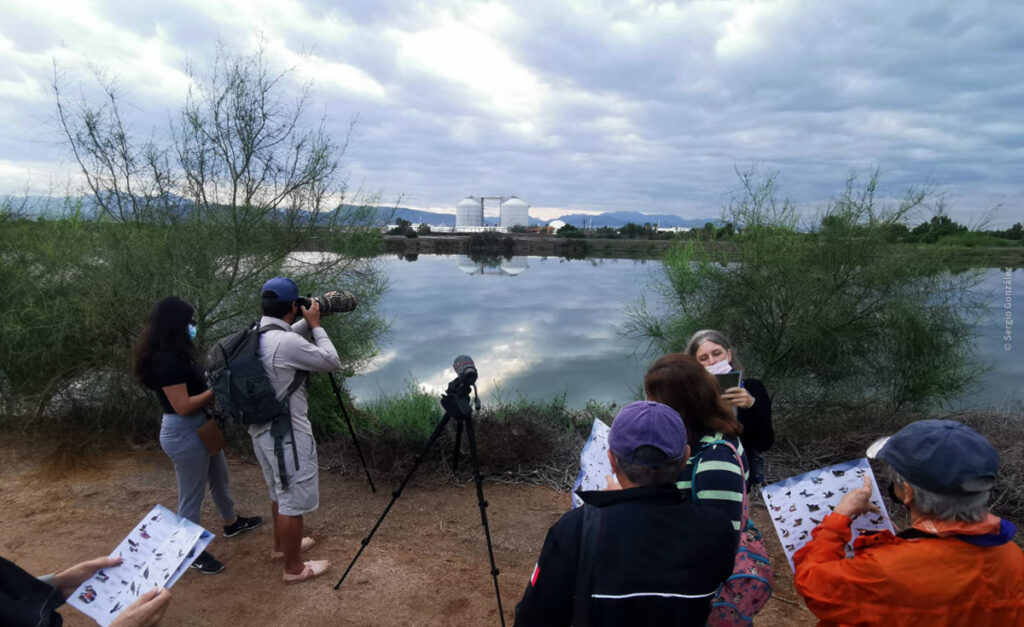
A sustainability model for the future
The drought and the rising temperatures have put the region's water supply at risk, affecting sectors such as agriculture and livestock. However, the restoration and conservation model being promoted by the Pronatura Noroeste demonstrates that it is possible to generate effective and sustainable solutions.
The organization's work in the recovery of water ecosystems not only protects the environment, but also offers alternatives to ensure the water security in the communities.
The participation of society, the private sector, and the authorities is fundamental to continue strengthening these actions and ensure that water continues to flow for future generations. Restoration and responsible water use are key to meeting the challenges of the present and building a more resilient future.
Source: Pronatura Noroeste

